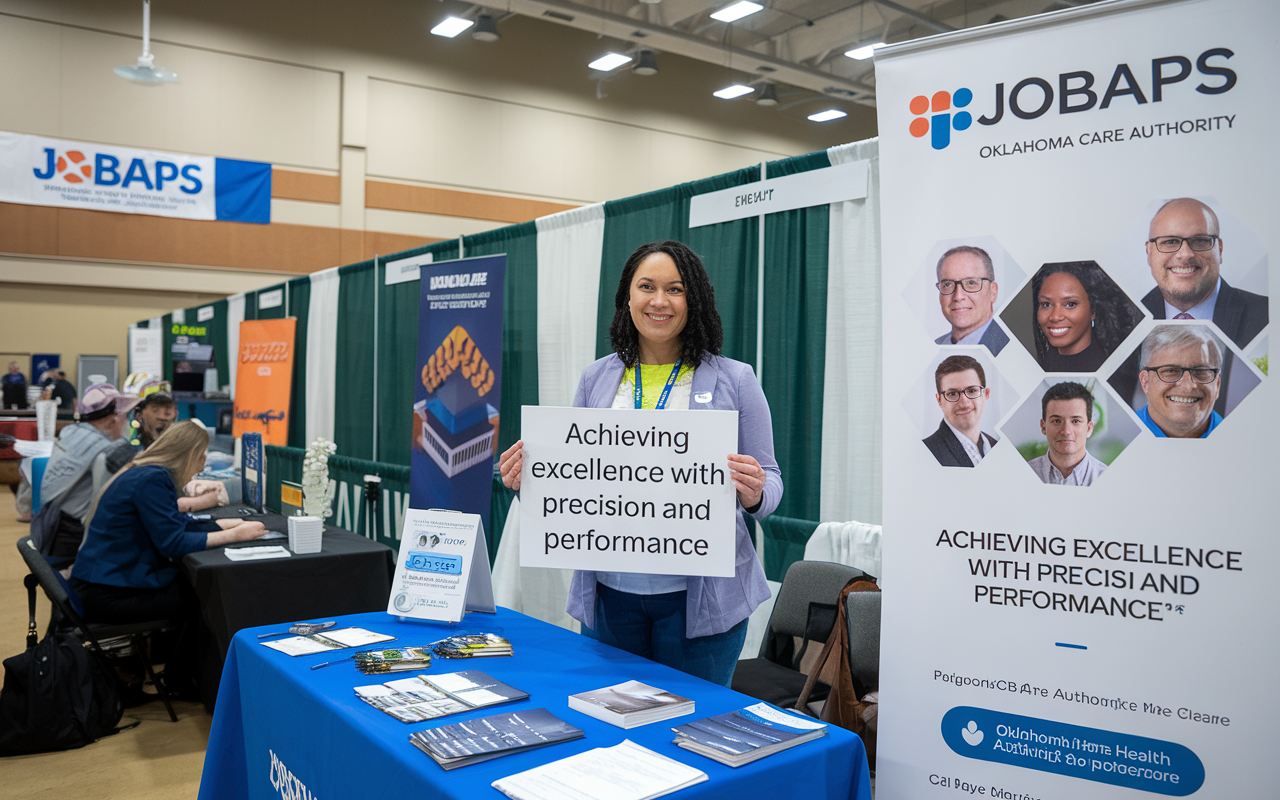Introduction
The Oklahoma Health Care Authority MEQC JobAps is pivotal in managing and overseeing the state’s Medicaid program, SoonerCare, which provides essential health services to millions of Oklahomans. Central to the functioning of OHCA are various programs and systems designed to streamline operations, ensure compliance, and enhance the quality of care. Two critical components of this operational framework are the Medicaid Eligibility Quality Control (MEQC) program and the JobAPS system. This comprehensive guide delves into the significance of MEQC, the functionality of JobAPS, and their impact on the healthcare landscape in Oklahoma.
Understanding the Oklahoma Health Care Authority (OHCA)
The OHCA is the state agency responsible for administering the Medicaid program in Oklahoma. A joint government and state program, Medicaid provides well-being inclusion to low-paying people and families. OHCA aims to improve Oklahomans’ health and quality of life by effectively administering health care services and programs. It involves ensuring access to care, managing costs, and upholding high service delivery standards.
The Medicaid Eligibility Quality Control (MEQC) Program
The MEQC program is critical to OHCA’s quality assurance and compliance efforts. Established to ensure the accuracy and integrity of Medicaid eligibility determinations, MEQC aims to verify that individuals receiving Medicaid benefits meet the eligibility criteria set forth by both federal and state regulations. Here’s a closer look at the MEQC program’s role, objectives, and impact:

Objectives of the MEQC Program
MEQC’s primary objective is to assess and improve the accuracy of Medicaid eligibility determinations. This involves periodic reviews and audits to identify discrepancies or errors in eligibility decisions. By doing so, MEQC helps ensure that only those who qualify for Medicaid benefits receive them, thus maintaining the program’s integrity and preventing fraud.
Components of MEQC Reviews
MEQC reviews involve a comprehensive examination of Medicaid eligibility records. It includes verifying income, residency, and other eligibility factors. The reviews are typically conducted on a sample of cases, allowing MEQC to extrapolate findings and identify broader trends or issues. Common components of MEQC reviews include:
- Eligibility Verification: Ensuring that all required documentation and information are accurate and up-to-date.
- Case Audits: Review individual cases to identify any inconsistencies or errors in the eligibility determination process.
- Compliance Checks: Assessing adherence to federal and state Medicaid regulations and guidelines.
Impact of MEQC on Medicaid Services
The MEQC program plays a crucial role in maintaining the overall effectiveness and efficiency of the Medicaid program. By identifying and addressing errors or discrepancies, MEQC helps to:
- Enhance Program Integrity: Ensuring that Medicaid benefits are provided only to eligible individuals, thus safeguarding the program from misuse.
- Improve Service Delivery: By identifying areas for improvement, MEQC contributes to enhancing service quality and administrative processes.
- Support Compliance: Helping OHCA adhere to federal and state regulations, avoiding potential penalties, and ensuring continued funding.

| Read More: oklahoma.gov |
JobAPS: The Oklahoma State Employment Management System
JobAPS is a critical tool the State of Oklahoma uses for managing employment processes, including job applications, recruitment, and employee data management. For the OHCA, JobAPS serves as a vital component in streamlining HR functions and ensuring effective management of staff involved in Medicaid administration and other health care services. Here’s an overview of JobAPS and its significance:
Overview of JobAPS
JobAPS (Job Application Processing System) is an online platform that facilitates state employment recruitment and hiring processes. The system allows job seekers to apply for positions, track application statuses, and manage their profiles. For state agencies like OHCA, JobAPS provides a centralized system for handling employment-related tasks, including:
- Job Posting and Recruitment: Agencies can post openings, manage recruitment campaigns, and review applications through JobAPS.
- Application Management: Job seekers can submit applications, track their progress, and receive updates through the system.
- Employee Records: JobAPS helps maintain accurate and up-to-date employee records, including personal information, job history, and performance data.
Features of JobAPS
JobAPS offers a range of features designed to streamline HR processes and improve efficiency:
- User-Friendly Interface: The platform provides an intuitive interface for job seekers and HR professionals, making it easier to navigate and manage job applications.
- Automated Workflows: JobAPS automates various aspects of the recruitment process, including application review, candidate screening, and interview scheduling.
- Data Security: The system employs robust security measures to protect sensitive information and ensure applicant and employee data confidentiality.
Benefits of JobAPS for OHCA
For OHCA, JobAPS offers several key benefits that enhance the agency’s HR operations and overall effectiveness:
- Streamlined Recruitment: JobAPS simplifies the recruitment process, enabling OHCA to manage job postings, applications, and candidate evaluations efficiently.
- Enhanced Efficiency: By automating routine tasks, JobAPS helps OHCA reduce administrative burden and focus on strategic HR initiatives.
- Improved Data Management: The system ensures accurate and up-to-date employee records, supporting better decision-making and compliance with employment regulations.

Integrating MEQC and JobAPS: Enhancing OHCA’s Operational Efficiency
Integrating MEQC and JobAPS within OHCA’s framework represents a significant advancement in managing Medicaid eligibility and human resources. While MEQC focuses on ensuring the accuracy and integrity of Medicaid eligibility determinations, JobAPS streamlines the recruitment and management of OHCA staff involved in these processes. Here’s how the integration of these systems enhances OHCA’s operational efficiency:
Coordinated Compliance and Training
By utilizing JobAPS to manage recruitment and employee data, OHCA can ensure that staff members responsible for MEQC reviews are properly trained and qualified. JobAPS facilitates tracking employee qualifications, certifications, and training, ensuring MEQC reviewers have the necessary skills and knowledge to perform accurate eligibility assessments.
Efficient Resource Allocation
The integration of MEQC and JobAPS allows OHCA to allocate resources more effectively. By leveraging data from JobAPS, OHCA can identify staffing needs and ensure sufficient personnel are available for MEQC reviews and other critical functions. It helps optimize the allocation of human resources and supports the overall efficiency of the Medicaid program.
Enhanced Data Accuracy and Reporting
Combining the insights from MEQC reviews with data managed through JobAPS enables OHCA to generate comprehensive reports on Medicaid eligibility and workforce performance. This integration provides a holistic view of program operations, allowing OHCA to identify trends, address issues, and make data-driven decisions to improve program outcomes.
Challenges and Considerations
While the integration of MEQC and JobAPS offers numerous benefits, there are also challenges and considerations to address:
System Integration and Data Compatibility
Ensuring seamless integration between MEQC and JobAPS requires careful planning and coordination. Data compatibility and interoperability between the two systems are essential for accurate reporting and effective decision-making. OHCA must invest in technology and resources to address integration challenges and ensure that both systems work smoothly.
Training and Support
Effective use of MEQC and JobAPS requires ongoing training and support for OHCA staff. As new features and updates are implemented, staff members must be equipped with the knowledge and skills to utilize the systems effectively. OHCA should provide regular training and support to ensure employees are proficient in MEQC and JobAPS.
Data Security and Privacy
Handling sensitive data through MEQC and JobAPS necessitates robust security measures to protect against data breaches and unauthorized access. OHCA must prioritize data security and privacy, implementing best practices and safeguards to ensure the confidentiality and integrity of Medicaid eligibility data and employee records.
Looking Ahead: Future Developments and Innovations
As technology and regulations evolve, OHCA’s approach to managing Medicaid eligibility and human resources will continue to advance. Future developments may include:
Advanced-Data Analytics
Integrating advanced data analytics tools with MEQC and JobAPS could provide deeper insights into Medicaid program performance and workforce trends. By leveraging big data and predictive analytics, OHCA can enhance its decision-making processes and identify opportunities for improvement.
Enhanced User Experience
Continued enhancements to the MEQC and JobAPS user experience will improve accessibility and efficiency for OHCA staff and job seekers. Innovations such as mobile-friendly interfaces, personalized dashboards, and streamlined application processes can enhance the overall experience.
Collaborative Solutions
Collaboration with other state agencies and stakeholders may lead to developing integrated solutions that address broader healthcare and employment challenges. OHCA and its partners can create more comprehensive and effective systems for managing Medicaid eligibility and human resources by working together.
Conclusion
The Oklahoma Health Care Authority’s MEQC program and JobAPS system are integral to the state’s Medicaid administration and employment management framework. MEQC ensures the accuracy and integrity of Medicaid eligibility determinations, while JobAPS streamlines recruitment and human resource processes. The integration of these systems enhances OHCA’s operational efficiency, supports compliance, and improves service delivery. As technology and regulations evolve, OHCA’s approach to managing Medicaid and workforce operations will adapt to meet new challenges and opportunities. By leveraging these systems effectively, OHCA can continue to provide high-quality care and support to the people of Oklahoma.



